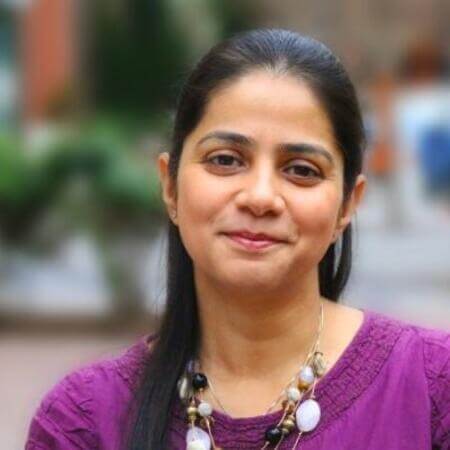At Okta, Diverse Identities Are What Drive Us Forward
As we look back on June, there’s lots for us to celebrate, not least of which is our talented group of employees and the role they play in helping Okta succeed. June was Immigrant Heritage Month, and one of the differentiators that drive our innovation and success is the cultural richness and diversity that our people bring to the table. This is a company that has thrived by recognizing the importance of identity, and nowhere is that more apparent than in our global group of Oktanauts.
On that note, let’s honor Immigrant Heritage Month by taking a moment to explore the stories, memories, and insights from some of our colleagues. By sharing their insights, they help bring all of us a little bit closer.
Global insights from our Oktanauts
This is something that never fails to amaze me, and it’s also a source of personal pride: India is so culturally diverse that if you love food you can have a different dish for breakfast, lunch, and dinner every day for a whole year! If you love eating, drinking and travelling, you know where to go next. — Aesha Shah, Manager, Salesforce.com, CPQ As an Egyptian, I recently celebrated the end of the Muslim holy month of Ramadan. Most people know that folks observing Ramadan fast from sunrise to sunset, though they’re not often familiar with all the details. So it never gets old to watch people’s surprised faces when we talk about fasting, and of course they always ask me the same hilarious question: “Not even water?!” Every year, my wife and I have a running bet on who will be asked that question first! — Mohamed Elsherif, Principal Software Engineer, OIN Platform
In the Kathmandu Valley of Nepal, we celebrate Gai Jatra—the Festival of Cows. Gai Jatra is a tradition of the Newar community, and commemorates all of the loved ones who have passed away during the year. It helps to diminish sadness by remembering that death is a natural part of life, and shows us that other families are grieving too so we don’t have to feel alone. People gather and walk around the city with cows, or dress their young ones in cow costumes, since they’re believed to be holy animals that guide the dead to heaven. — Sunbid Shrestha, Commercial Renewals Manager Zoroastrianism, which originated in ancient Persia, teaches that fire is the element of cleansing and purification. This is why Iranians around the world celebrate Chaharshanbe Suri—the Festival of Fire—on the last Tuesday night of the year. On this night, family and friends come together to create small bonfires and jump over the flames. This brings brightness into the new year and symbolically chases away all the bad spirits—at least until the last Tuesday of next year, when it’ll be time to do it all over again! — Heidi Ekhlasi, International Web Marketing Manager A fika is a short coffee break—usually fifteen minutes or less—and it’s often accompanied by a cookie or sweet bread. It is practiced by all Swedes in all workplaces, from corporate offices to manufacturing plants, and is typically held two times per day—once in the morning and once in the afternoon. During a fika, everyone in your immediate department or office space stops working and goes to enjoy a coffee and pastry together in the kitchen. It’s as close to mandatory as anything Swedes will do. It’s a great way to bond with your colleagues, and just get a short break to reflect on your work. — Marcus Hartwig, Sr. Product Marketing Manager The Yucatan Peninsula where Cancun, Conzumel, and Chicen Itza (UNESCO Heritage site Pyramid) are located was actually named as a mistake. When the Spaniards arrived, they asked what the place was called, and the locals answered “Yucatan.” In the local language, Yucatan means “I don’t understand you,” but the Spaniards thought they replied with the name of the place. — Robin Pattyn, Sales Development Rep If you’re in Morocco on a Friday, you’ll likely find the same thing on the lunch menu whether you’re with a local family or out at a restaurant: couscous. This must-eat dish is made of semolina from crushed durum wheat, packed into small balls and steamed—though different regions prepare it in different ways. Most of the time, it’s served with an assortment of seven different vegetables, making the dish a beautiful and tasty work of art. — Salima Kaissi, Senior Manager, Strategic Alliance and Business Dev I come from Udaipur, located in Rajasthan, India. ‘Raja’ means king and ‘Sthan’ means place, so it’s no surprise that the area is known for its famous palaces and festivals, as well as the beautiful lakes. The local culture is known for folk dances and music, as well as spicy food—mostly made in ghee to balance the heat—pickles and sweets. More than 70% of people in Rajasthan are lacto-vegetarian, making it one of the most meatless states in India. The ghoomar dance, which originated in Udaipur, has gained international recognition, and the bright, colorful royal attire is also one of the local traditions. — Sandeep Kumbhat, Master Principal Solutions Engineer
So happy Immigrant Heritage Month, everyone! Thank you for being you and enriching our culture here at Okta.

